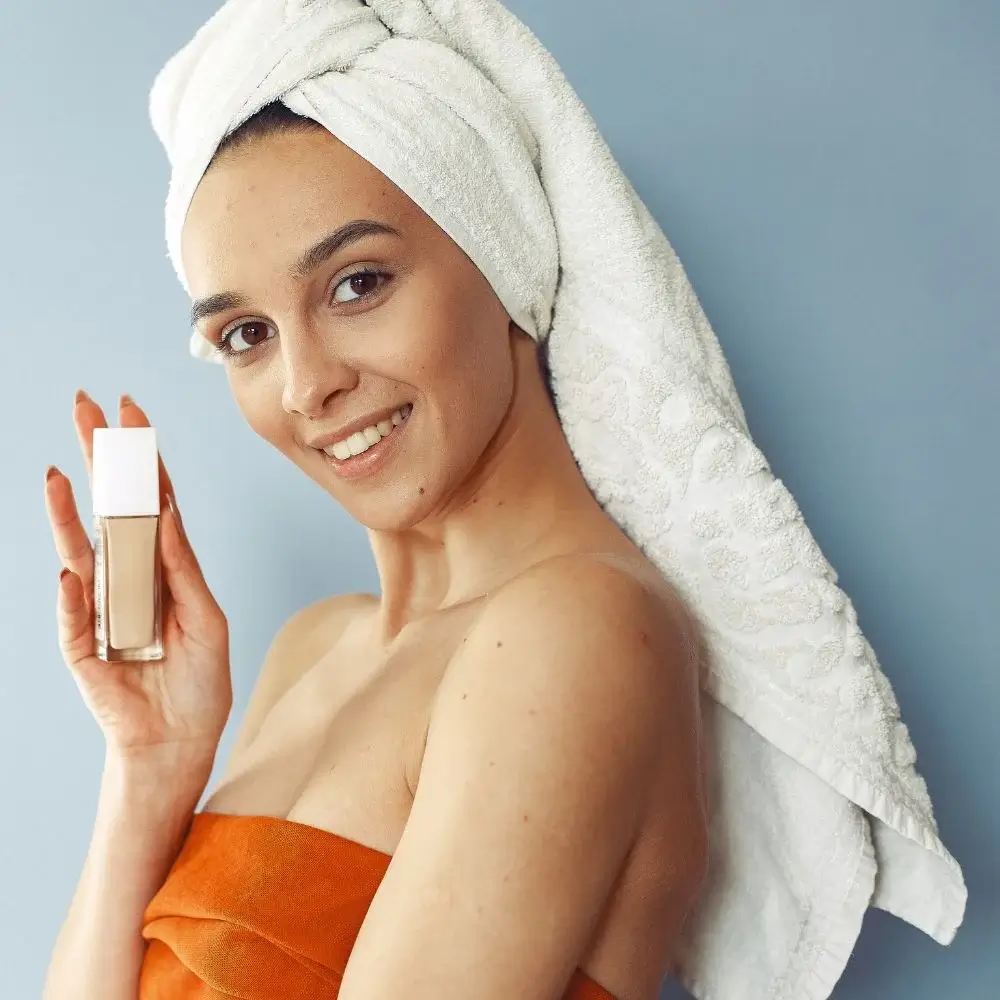Primer is a crucial step in any beauty routine, and it's even more critical when it comes to protecting your skin from harmful UV rays. With so many options on the market, it's easy to feel overwhelmed or unsure which primer with SPF to choose. In this ultimate guide, we'll dive into what you should look for when choosing a primer with SPF, the benefits of using one, and some top recommendations.
SPF levels
When choosing a primer with SPF, it's essential to consider its sun protection factor or SPF level. SPF measures how well a product protects your skin from UVB rays. Higher SPF levels offer more protection, but it's important to note that there isn't a significant difference between SPF 30, 50, or 100. The American Academy of Dermatology suggests using a broad-spectrum sunscreen product with an SPF of at least 30.
Skin type
Primers with SPF come in different formulas, each catering to specific skin types. (find the best primer for acne prone skin here!) Look for a mattifying formula for oily skin that controls oil production without clogging your pores. If your skin is dry, opt for a primer with hydrating qualities. If you have sensitive skin, make sure to select a product that is free from fragrance, alcohol, and irritants.
Sun protection ingredients
Primers with SPF contain sun protection ingredients to shield your skin from harmful rays. Zinc oxide and titanium dioxide are physical ingredients, while avobenzone and octinoxate are chemical. Chemical sunscreens absorb into the skin to protect the cells, while physical sunscreens sit atop the skin to deflect UV rays.
Extra benefits
Many primers with SPF have added benefits besides sun protection. For example, some formulas can even out skin tone, help conceal imperfections, and provide a smooth canvas for makeup application. When choosing a primer with SPF, consider its other benefits.
Product recommendations
Now that you know what to look for when choosing a primer with SPF, let's talk about some product recommendations. One fantastic option is the NYX Professional Makeup Bare With Me Tinted Skin Veil, which provides natural, light coverage while protecting your skin from the sun's harmful rays. If you have oily skin, the Supergoop! Matte screen SPF 40 is perfect for you. Try the Tarte Cosmetics SEA Set Sail Tinted Moisturizer SPF 30 for those with dry skin. And if you're looking for an SPF primer targeting specific skin concerns like redness or texture, check out the E.L.F. Beauty Shield SPF 50 Skin Shielding Primer.
Choosing a suitable primer with SPF doesn't have to be a daunting task. Make sure to consider the SPF level, your skin type, sun protection ingredients, extra benefits, and product recommendations. Remember always to apply sunscreen as part of your daily routine, regardless of whether you use a primer with SPF or not. With a suitable primer with SPF, you can have sun protection, added benefits, and a flawless complexion.
Calling all beauty lovers! We know you're always on the hunt for the latest and greatest beauty products, and we're excited to share our latest findings with you. After extensive research and consulting with top beauty editors, we've discovered the best primer with SPF on the market. No need to sift through endless options or settle for a mediocre primer anymore. Simply click on the link and discover your new go-to primer that enhances the look of your makeup and provides sun protection. Trust us, your skin will thank you.
What is the purpose of using a primer with SPF?
Using a primer with SPF serves a dual purpose: it prepares your skin for makeup application while protecting against harmful UV rays. The primer helps to create a smooth canvas by filling in fine lines, minimizing pores, and ensuring the even application of foundation. Simultaneously, the SPF component shields your skin from the sun's damaging effects, such as premature aging, sunburns, and potential skin cancer risks. By incorporating a primer with SPF into your routine, you can streamline your skincare and makeup regimen while safeguarding your skin from sun damage.

What are the benefits of using a primer with SPF?
Utilizing a primer with SPF offers numerous advantages:
- It provides other protection against harmful UVA and UVB rays, reducing the risk of sunburn and damage.
- It creates a smooth and even base for makeup application, enhancing the longevity and appearance of your foundation.
- A primer with SPF helps to control excess oil, (find the Best Tanning Oil here!) minimize the appearance of pores, and improve the overall texture of your skin.
Combining sun protection and cosmetic benefits makes a primer with SPF indispensable in your daily skincare and makeup routine.

What types of skin can benefit from using a primer with SPF?
All skin types can benefit from incorporating a primer with SPF into their skincare regimen. If you have oily skin, a primer with SPF can help control excess shine while providing sun protection. Dry skin can benefit from the added moisture and hydration some primers offer, alongside the sun-blocking benefits. Those with sensitive skin can find relief in primers formulated with gentle ingredients that soothe and protect the skin. Even individuals with normal or combination skin can benefit from the multifaceted advantages of using a primer with SPF.

How does a primer with SPF help create a smooth makeup base?
A primer with SPF acts as a preparatory step to create a smooth makeup base by addressing various skin concerns. The primer's silicone or oil-based formulation helps fill fine lines, wrinkles, and pores, resulting in a smoother appearance. It also helps the foundation glide effortlessly, allowing for even application and better adherence. Besides, the SPF component in the primer shields the skin from sun damage, preventing sunburns and premature aging. Overall, using a primer with SPF ensures a flawless and long-lasting makeup application while protecting your skin from external aggressors.

How does a primer with SPF protect the skin from sun damage?
A primer with SPF safeguards the skin from sun damage through its sun-blocking properties. The SPF ingredient, usually a combination of physical and chemical filters, creates a protective barrier on the skin's surface. Physical filters, such as zinc oxide or titanium dioxide, reflect or scatter UV rays, while chemical filters absorb and neutralize them. Together, they shield the skin from UVA and UVB rays, preventing sunburns, skin discoloration, and other harmful effects of sun exposure. Using a primer with SPF provides an extra layer of defense against the sun's damaging rays.
Should I use a separate sunscreen along with a primer with SPF?
While a primer with SPF provides some sun protection, using a separate sunscreen alongside it is generally recommended. The SPF in the primer is often insufficient to provide comprehensive protection throughout the day, especially if you spend extended periods outdoors or in direct sunlight. Applying a dedicated broad-spectrum sunscreen with a higher SPF rating over your primer ensures optimal sun protection. Remember to choose a sunscreen that complements your skin type and reapply it as directed to maintain adequate protection against harmful UV rays.







